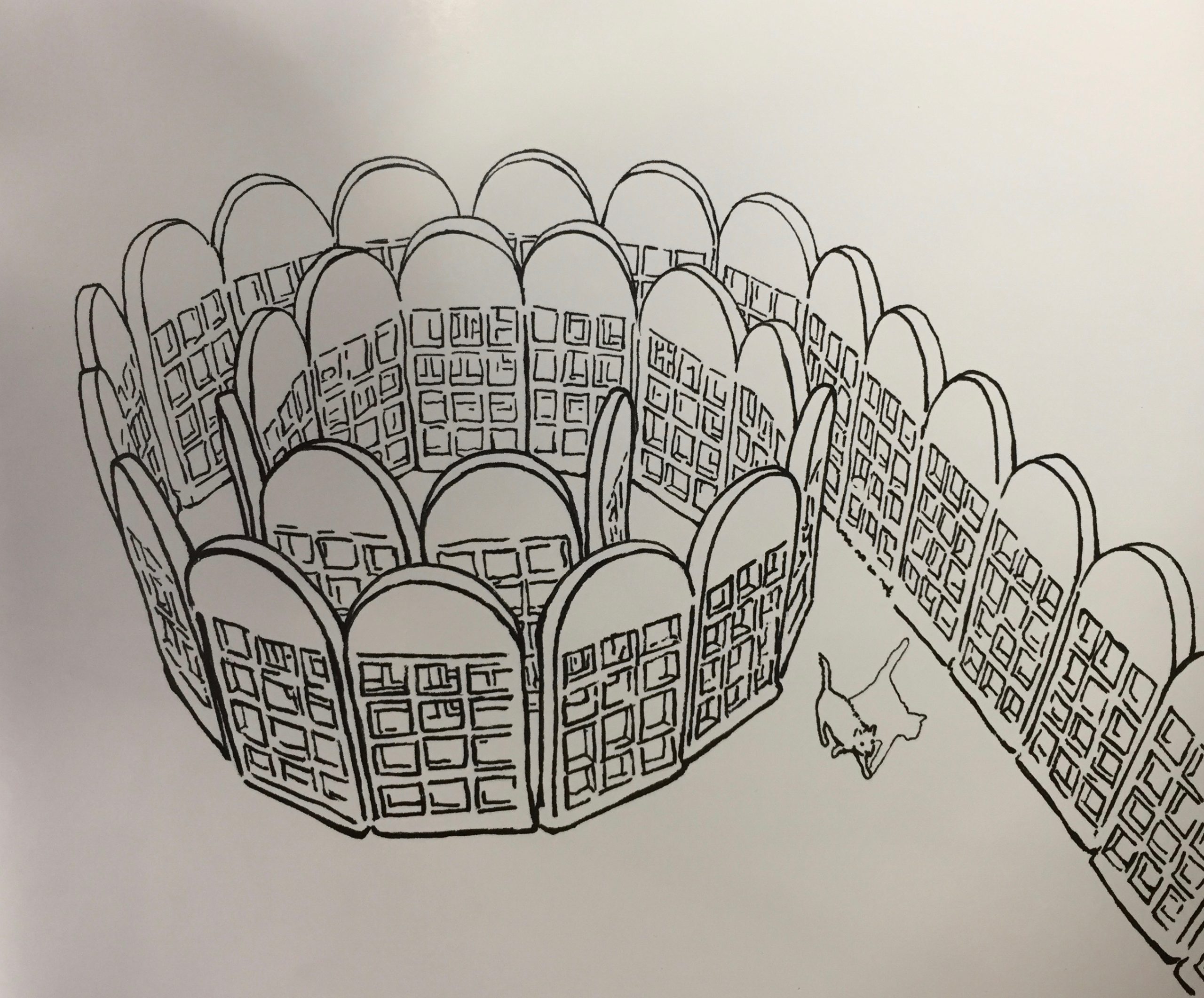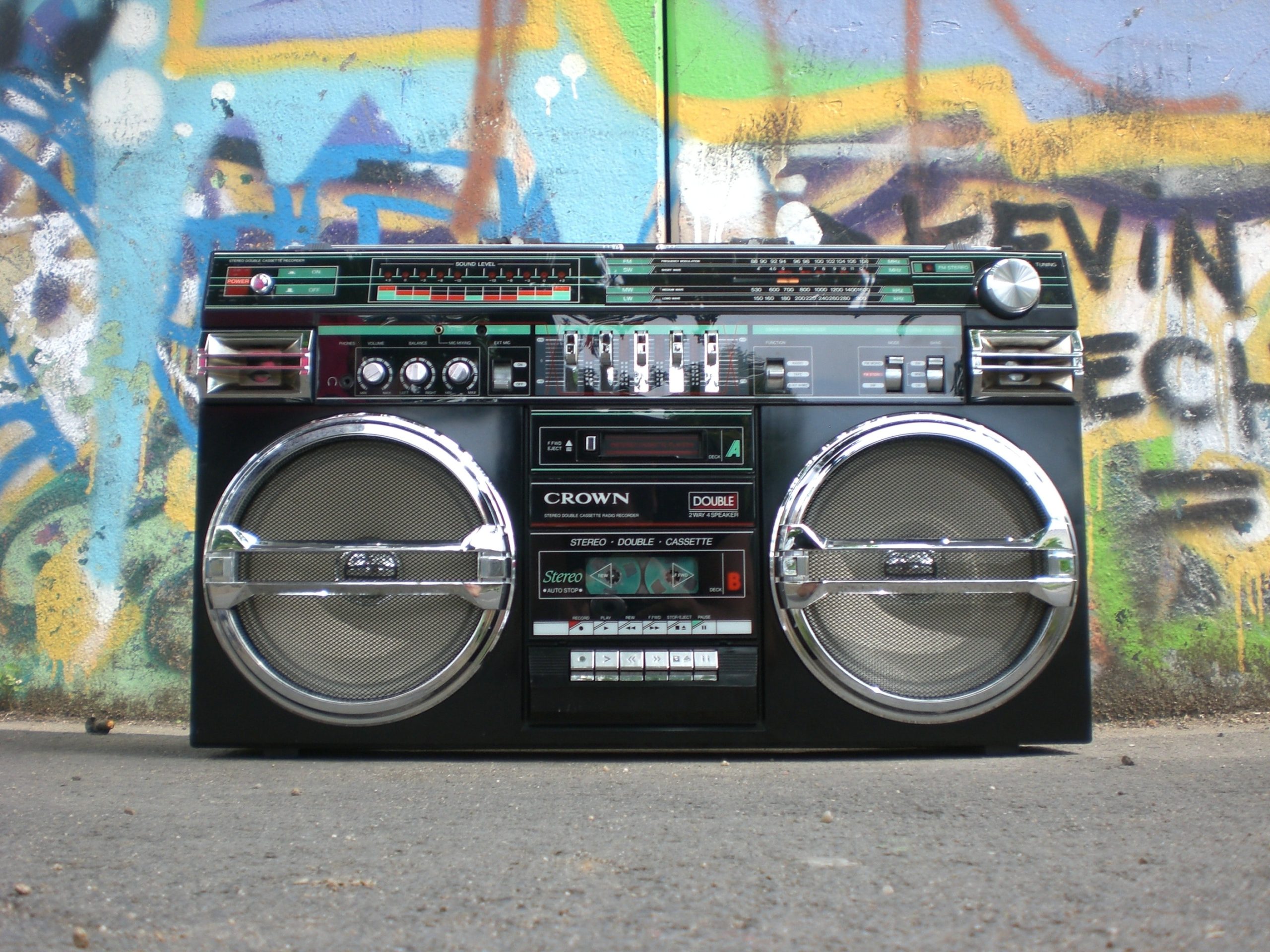
The above is the opening text for the music video to Drake’s song God’s Plan. God’s Plan is, like many Drake songs, catchy, creeping, and sadistic. The catchiness is quantifiably evident in the success of the song. The creeping may not be something listeners admit to, as some folks may prefer to have unique tastes just as many people enjoy feeling special and different (Drake likes feeling special too). Folks of discerning taste likely prefer music that is not over-produced, contrived pop that infiltrates the host’s brain like a prion and causes listeners to slowly go the special brand of crazy for which the only means of slowing the prion’s irreversible consumption of the host brain is hearing God’s Plan again.
The instinct to listen to Drake repeatedly is sadistic. As is titling a song God’s Plan. That title really puts me in my feels. In my essay on To Pimp a Butterfly, I discuss how Drake’s music and public persona are predicated on feels. There are two available interpretations of this emotion-inducing title; these interpretations are constituted by listening the lyrics and watching the video. First, Drake sees his success as part of God’s plan (and if people are “hating” on Drake’s success, God will also help Drake conjure the strength to overcome that adversity). The second interpretation is that Drake thinks, as he says in the song, that he “might go down a G-O-D.”

In the video for God’s plan, Drake gives money away. Drake loudly gives a lot of money away. This filmed act of “charity” is complicated by the fact that the video immediately articulates the fact that the money given away is not Drake’s money. By giving away the budget of his music video, Drake is presenting himself as a modern Robin Hood. “Stealing” money from a tyrannical “label” and giving that money to the poor. Drake is not Robin Hood, and the only necessary piece of evidence is that Drake is not hiding out in the woods and living in poverty while stealing money from record executives. Drake is rich, visible, and owns many nice homes.
Drake is RICH. Nevertheless, Drake isn’t giving his own money away in this video. Drake adopts a posture of charitableness, but he doesn’t want to give his own money away (lest he miss a payment on one of his many nice homes). While Drake is playing Robin Hood, he acknowledges a desire for God status. And maybe Drake already is God.

My feels about God’s Plan congealed when I recognized that Drake clapping a brick of money before handing it off to a father in the video parallels Alonzo Harris clapping bricks in Training Day. In the movie Training Day, Denzel Washington’s character, Alonzo, is a bad man. Alonzo is also a detective. Alonzo is in debt to the Russian Mafia, and to pay that debt in time, Alonzo kills a former detective (and friend) in order to recover four million dollars that Alonzo knows the former detective has hidden under the floorboards. Unfortunately, the day Alonzo is scheduled to “bust” the former detective, Alonzo has a detective-in-training riding with him. The trainee is Jake Hoyt, played by Ethan Hawke. While pulling up the cash, Alonzo states his plan to give three million dollars to LAPD and split the remaining million among his colleagues. Alonzo tells Jake to “buy your wife a minivan with that; put your kids through college” as a way of reminding Jake that he needs, and probably deserves, the money. And while the means of obtaining the money may not be sound, money cleans itself by going towards wholesome, family needs.

Look at the baby as Drake hands over a short stack of cash to dad. The baby’s eyes are wide and it absently reaches out to grab the cash. In the video, Drake can be heard saying “Yeah, you got the right idea,” presumably to the baby. The “right idea” is grabbing the cash. Drake has the right idea too.
If, or how, listeners factor the “evil label” making money off of this song and video into their cultural capital calculus is as important to the label as it is to Drake. The longer Drake poses as a martyr to the evils of “the label,” the longer the label and Drake can continue making money together. And money is the most important thing for Drake.
The idiom ‘you have to spend money to make money’ never resonated so profoundly as it does in God’s Plan. Drake is handing other peoples money out in an effort at making more money for himself.
Few things are more Christian than “doing charity” and getting paid for it. Churches survive through donations, which support the works of the church while demonstrating belief. Churches do charity; churches work to get sinners into heaven, and they are paid via congregational donations. Drake “does charity” and gets paid by his congregation of listeners.
G-O-D or no, Drake is a physical manifestation of the term “code switching.” Because Drake traffics in “image” and speaks listeners’ language, Drake recognizes that this “humanitarian work” of giving money away will enhance his marketability, his views, his listens, and his income. By switching between various patois and diasporic production elements, his codes get more nuanced and layered just as his identity is further obfuscated.

As Alonzo divulges the nuances of the plan that Jake just helped to execute, Jake expresses moral misgivings.
After Jake refuses the money, Alonzo claps two $25,000 bricks of cash together and says “first time, you not comfortable. I’ll hold it for you.” Alonzo is grabbing the cash. Alonzo has the right idea.

The feels I got watching God’s Plan were not nice feels. But why was I so emotional, so angry? The candid quality of the video conjures the style of a documentary film.
At one point, Drake talks to a crowd of children and adults in what appears to be a children’s hospital and says: “I brought toys for every single kid, so all the kids get toys.”
In a subsequent scene, yet another girl’s legs turn to Jell-O after Drake sneaks up on her. The scene cuts and Drake is looking at jewelry with the Jell-O-legged girl (who now manages to stand without support) as Drake says in voice-over: “I want you guys to go on a shopping spree on me. You guys can get whatever you want.” All that giving doesn’t seem to merit anger.
But Drake is lying. The shopping spree is not “on [Drake].” The money for the shopping spree came out of the label’s budget, so the shopping spree ain’t on Drake. These give-aways may have been Drake’s idea. Maybe.
The video performs narrative magic and claims Drake as a magnanimous G-O-D that gives money to the poor; a hero to the people receiving the money as well as those watching. However, by presenting information in a gaudy, manipulative, insincere manner, the video undermines its own integrity and emphasizes that this is a political move to make Drake look like a good guy.
Drake you are not paying a young woman’s college tuition. You are not giving a young couple a new Acura. You are lying and manipulating. You are lying to the people you give the money to by saying you are giving it to them. You are manipulating viewers into feeling the emotional gravity of the gifts and the giddiness of the recipients. You are a rich dude giving away a tiny crumb of money from the cake of someone with far more money than you.
You are not G-O-D. You are not even A G-O-D. You are Drew Carey on The Price is Right. You are the Catholic Church educating children while hiding their molestation at the hands of your priests.
People watch Training Day and agree that Alonzo is a bad guy, even if he is charismatic. People watch God’s Plan and think Drake is a good guy, and charismatic. Can one be bad and one good when both characters lie, manipulate, try to cover up their mistakes, and see grabbing cash as the right idea? Maybe Drake and Alonzo are as similar as their mannerisms make them seem.








